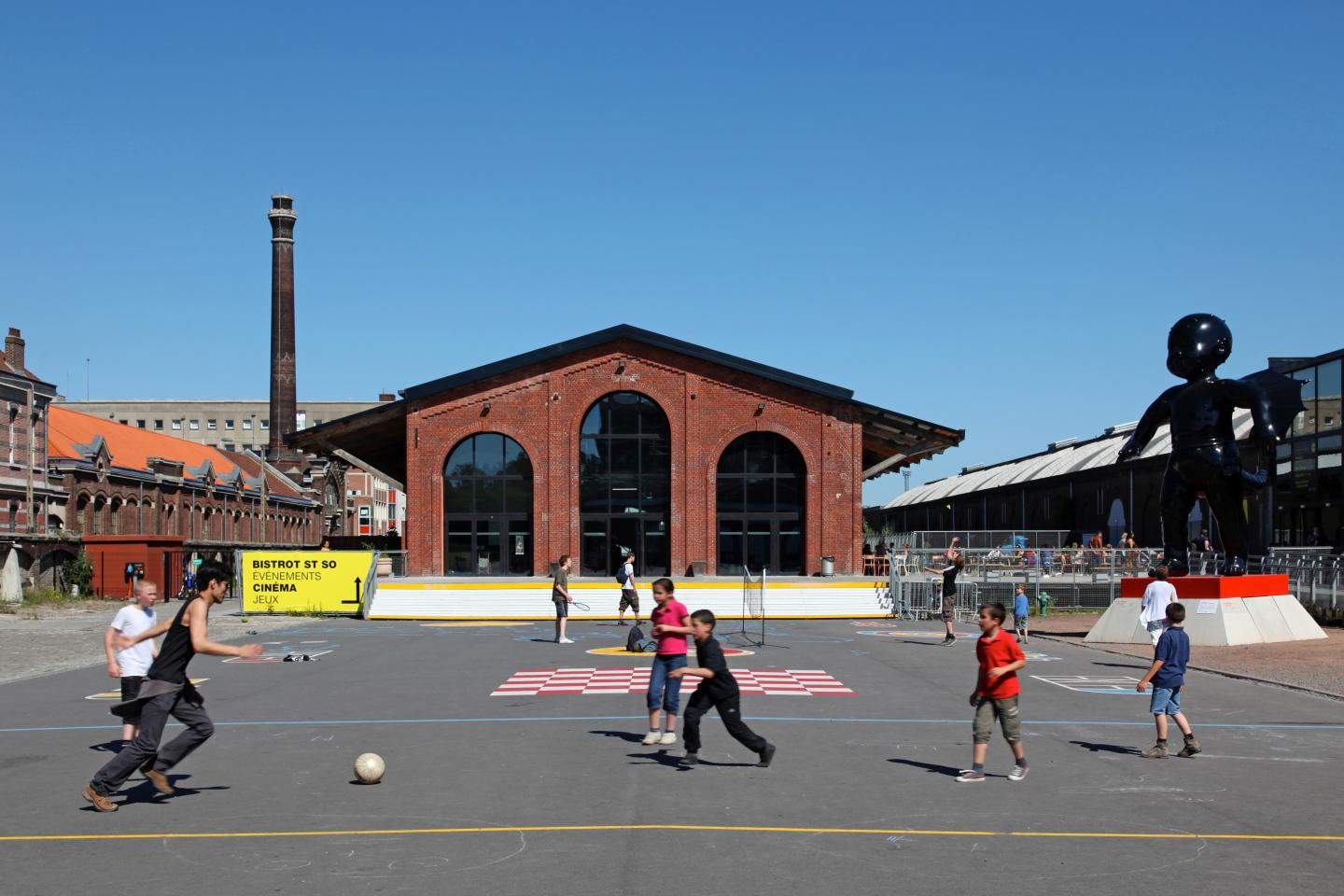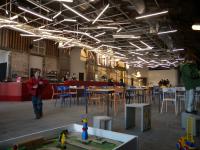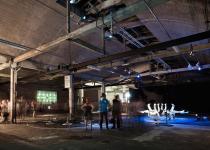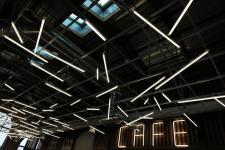The transformation of this former train station built in 1858 is based on an atypical process.
Two key principles were decided upon to build this project in time – as intelligent as it is unusual – by solving outstanding issues linked to time and financial constraints:
- In the absence of programming studies, the project is limited to a program of cultural center, equipped with the strict minimum needed for the building restructuring. No fuss or technical gadgets risking rapid obsolescence, no sophistication, no losses.
- To outpace the little time – eight-month – allocated to studies and construction work, the office decided to use old quotations made by contractors within the scope of other projects and clients, and whose period of validity had not yet expired.
Having developed the concepts of adaptability and ready-made, the building finds itself assembled from bits and pieces taken from here and there, the haphazard result of previous negotiations – such as the fluorescent lights coming from a public car park, whose unit price had been negotiated during the call for bids for this latter project. The same approach applies to the painting, and the furniture was initially developed for a school.
Inside, friendliness and usability have been prioritized – Hall A houses a cinema theatre and its bar, with utilitarian, affordable, and surprisingly ‘low-tech’ material. Hall B features exhibitions, concerts and the traditional Sunday flea markets dear to the inhabitants of Lille, where the focus is on quality service with the guest artists and their cultural production.
The Lille City Hall has made this project a symbol of its cultural policy, giving the people an opportunity to pay a visit where the sense of belonging is no longer questioned.
2008
2009
Lead Architect
FRANKLIN AZZI
Team
Representative architects : Dora Marques
Architects associates : Service Patrimoine Architecture de la Ville de Lille, Ville de Lille
Co-contractors architects : Franklin Azzi
Structure engineer : Philippe Bauer
Acoustic engineer : Acapella
Graphist : Change is Good
Designer : Robert Carr
Clients
Client : Lille 3000, Pôle Culture et Manifestations de la Ville de Lille
Technical controller : Préventec
Health protection and security office : Bureau Veritas









